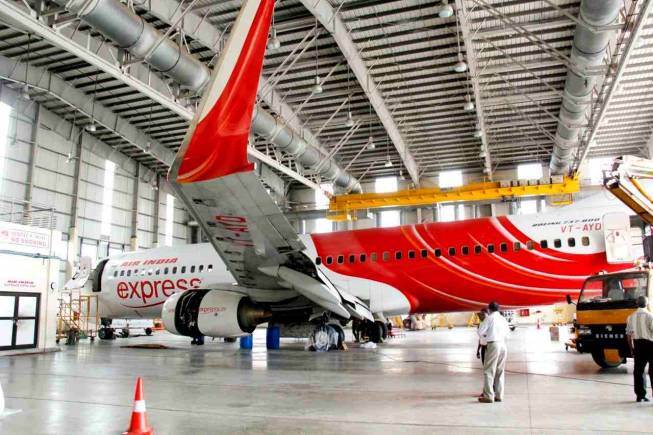The worst is not over is perhaps the biggest warning for the global aviation sector, including that in India.
Airbus and Boeing, the world’s two biggest commercial aircraft manufacturers, on April 29 announced results for the first three months of 2020.
Both of them are in the red. Airbus reported a net loss of $521 million and Boeing $641 million, both boxed in by the disruption caused by the coronavirus outbreak that has wrecked the global aviation industry.
While the numbers are a reflection of the slump the industry has been through, the commentary around their results is a sign of things to come.
Here are the five most important learning:
'Worst yet to come'
The coronavirus might have led to unprecedented financial loss to the aviation sector, but it is not done yet.
Airbus CEO Guillaume Faury told employees in a mail that even as the European company burns cash at an “unprecedented speed”, the situation may not reflect the worst-case scenario. It would take, Faury added, anywhere between three to five years for passenger traffic to get to the pre-COVID-19 levels.
COVID-19 is the respiratory illness caused by the coronavirus.
This is not the kind of news that the aviation sector will be looking forward to, even as large part of it look to resume operations.
In India, airlines are waiting for what the government has to say once the lockdown ends on May 3, though restrictions are expected to continue. Flights have been suspended since late March and only a resumption in operations can bring in cash, imperative to meet costs.
“The survival of Airbus is in question if we don’t act now,” Faury said in his mail.
A warning that would have made the European planemaker’s employees as nervous as the their peers in the aviation industry.
Job cuts
Airbus has already furloughed thousands of employees, including 3,000 at its Wales unit in England alone. It warned of more and Faury's mail signalled that employees have to be prepared for an extreme step.
Boeing, the American counterpart, has said it will cut 10 percent, or 14,000, jobs as it tries to limit costs.
There could be more as losses mount.
This will increase worries for employees of airlines, which have already laid off large parts of their workforce. British Airways has said it will cut up to 12,000 jobs.
In India, carriers such as GoAir and SpiceJet have terminated contracts of their expat pilots. Hundreds of their employees, and many more in other airlines, have been sent on leave without pay. SpiceJet on April 29 told pilots they won't be paid salary in April and May.
Increased job losses at Airbus and Boeing mean they expect lesser business, or deliveries, over the next few months. In other words, their clients- the airlines-- are struggling to even take the delivery of aircraft they have placed orders for.
Airlines would have no option, but to further cut their salary bills.
Lower production
In the first three months of the year, Airbus delivered 122 aircraft, 40 fewer than a year ago. Delivery of 60 were deferred.
Boeing added that it would churn out fewer aircraft, including the 787 and the 777, in the coming months.
The two have been forced to re-align their production rate to the sudden drop in airlines’ appetite to expand their fleet. Both have big clients in India -- IndiGo for Airbus and SpiceJet for Boeing.
For the investors of the two listed companies, used to the two carriers furiously expanding their fleet and networks, this is a sobering reality.
As we wait for projections from the two largest low-cost airlines in the country, it is safe to assume there will be a pause in expansion.
SpiceJet has already returned some of its aircraft to lessors and IndiGo may stretch delivery dates for its new aircraft.
Cash is king
Both, Airbus and Boeing, are humongous in size. The two had revenues of over $70 billion each in 2019 and that is helping them weather the present crisis.
But, they are burning cash, fast.
A report by Aerotime Hub said, "Airbus burnt through $8.7 billion in cash (including $3.9 billion in penalties), while Boeing reported minus $4.3 billion in operating cash flow‒the worst in the history of the company."
Not many airlines have this cushion.
Some, including Flybe and Virgin Australia, have already filed for bankruptcy.
In India, airlines have managed to hang on, till now. But only one of them, IndiGo, has enough cash to see the year through without government aid.
Boeing has already got $17 billion in aid from the US government and Airbus has been promised a lifeline by the French.
It will be tough for some Indian airlines to survive without similar help from the government.First Anniversary Offer: Subscribe to Moneycontrol PRO’s annual plan for ₹1/- per day for the first year and claim exclusive benefits worth ₹20,000. Coupon code: PRO365










